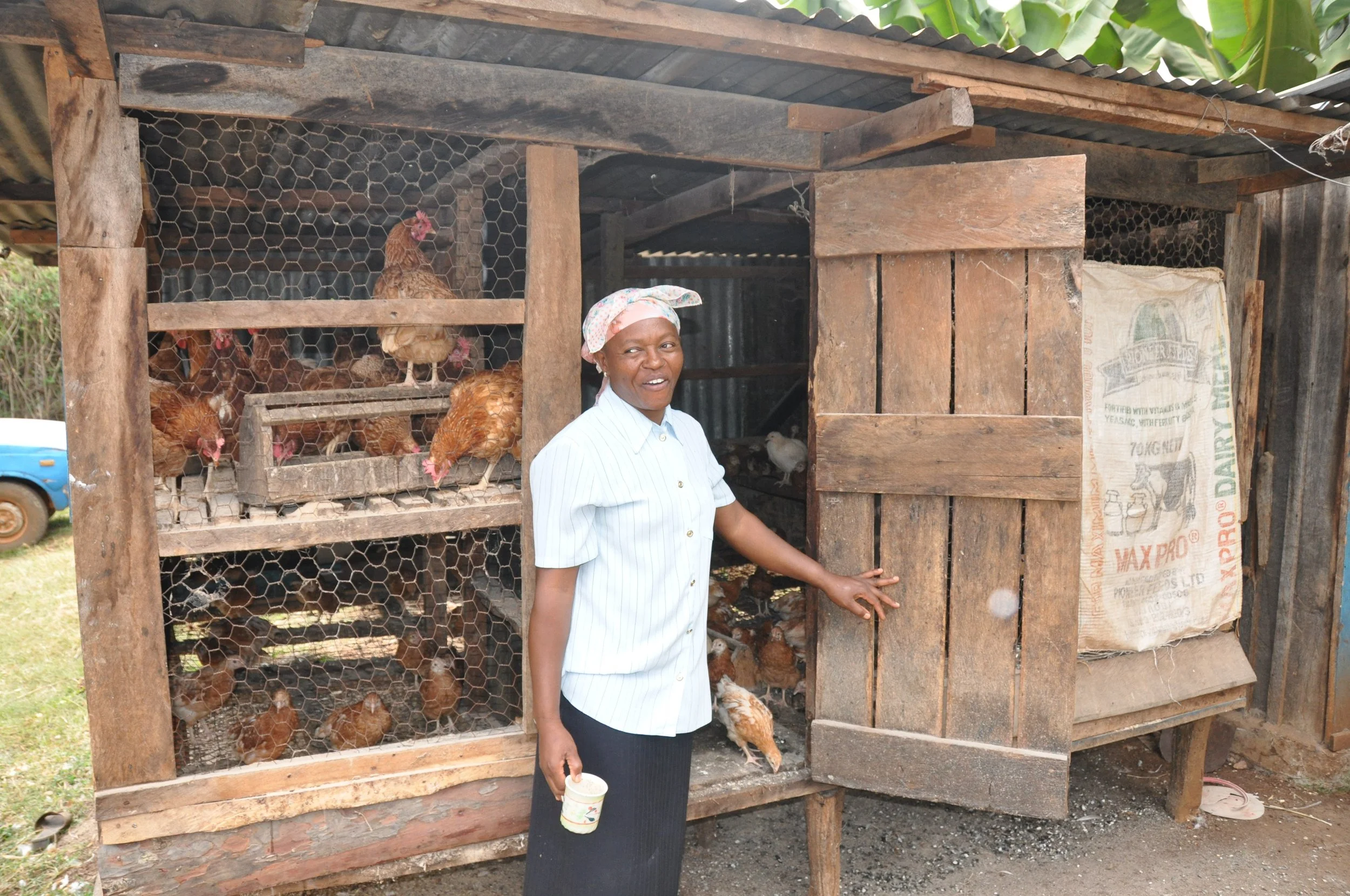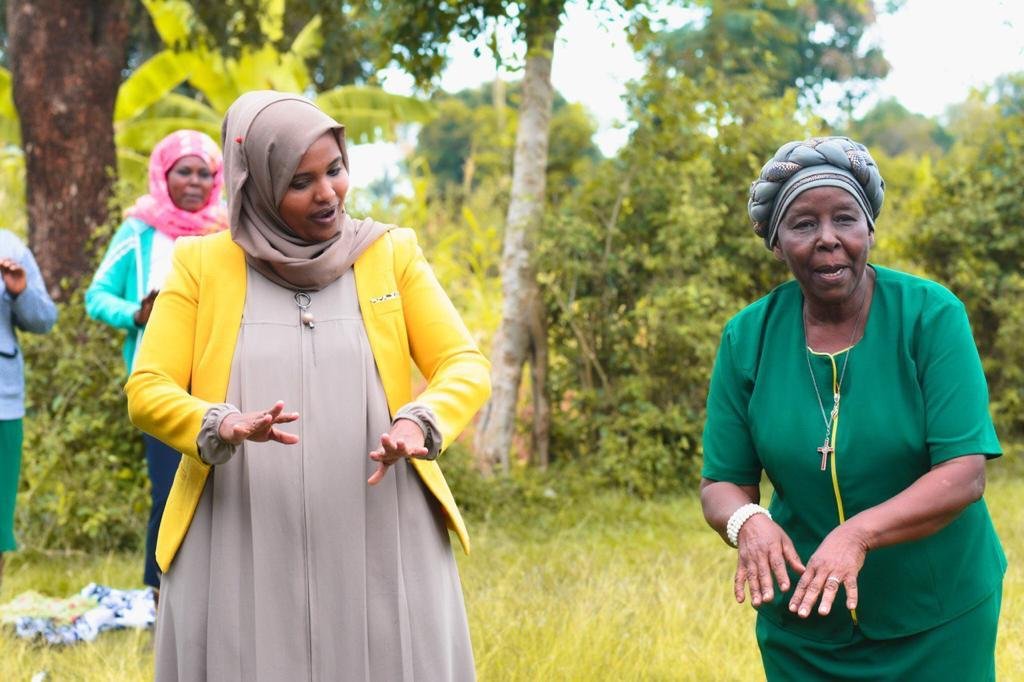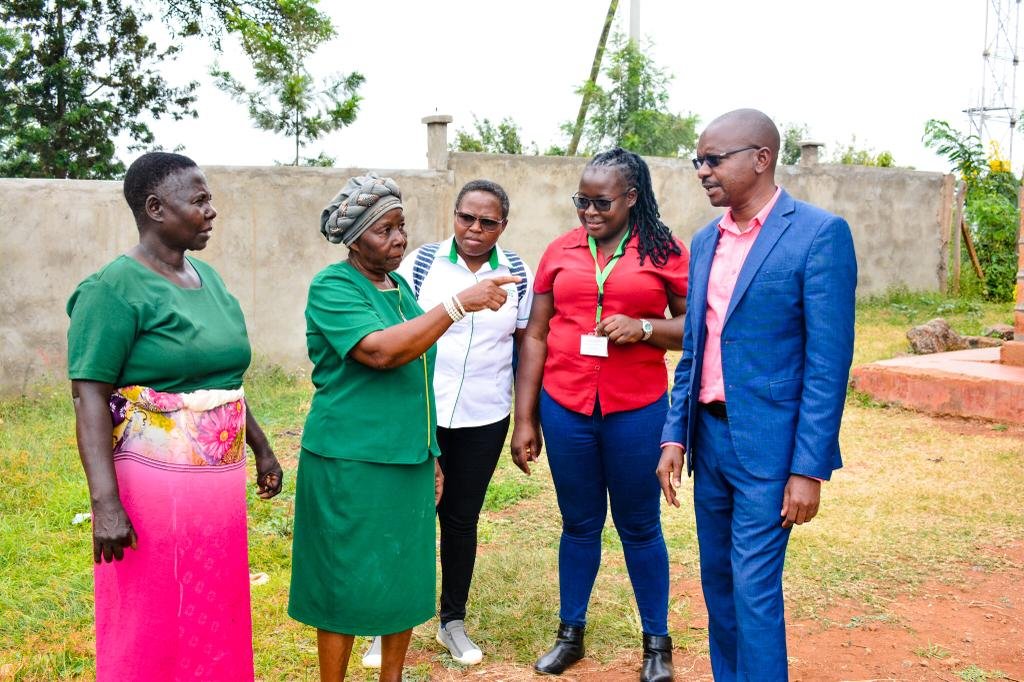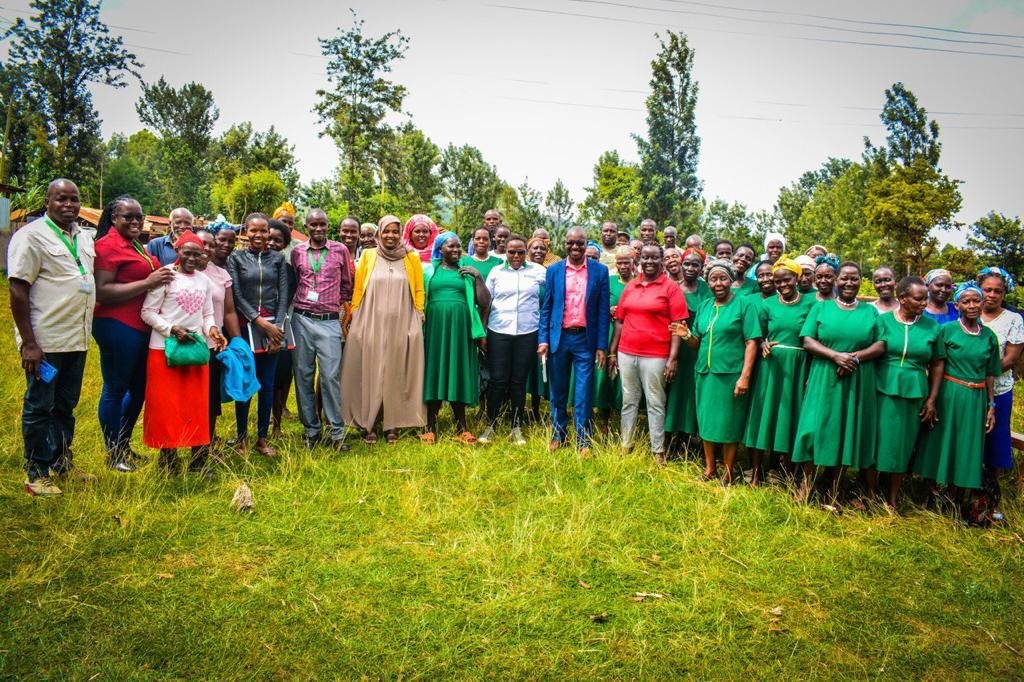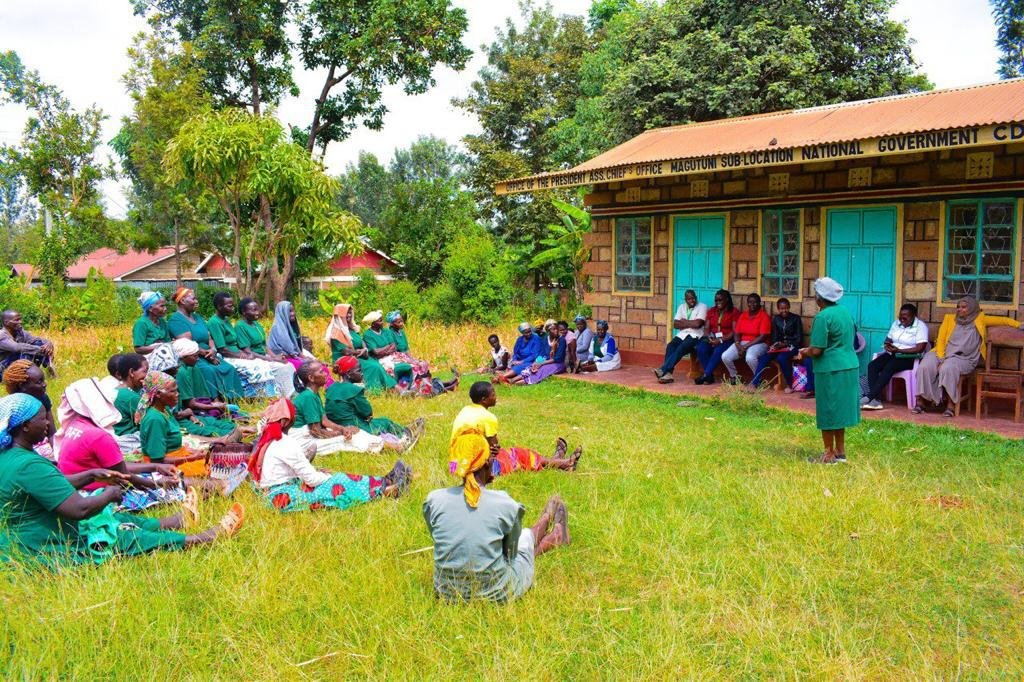How Street Business School and Our Micro Enterprise Program Combat the Vicious Cycle of Poverty
This past May was a busy month for HopeCore and our Micro Enterprise program. We are taking our program to new heights by offering additional training and lending opportunities to our community. Please read on to learn about what HopeCore has been up to!
Graduates from HopeCore’s recent Street Business School Training Program
Since the year 2000, HopeCore has been dedicated to providing training and entrepreneur opportunities to rural Kenya villagers who otherwise wouldn’t have the ability to start their own businesses.
One of HopeCore’s Micro Enterprise entrepreneurs with her chicken business
What is Micro Enterprise?
A micro-enterprise is a small business venture that is owned and operated by an individual or a group of individuals who lack access to traditional financial services.
Micro-enterprises are crucial for the economic development of rural communities. By creating income-generating opportunities, they provide individuals with the means to escape the vicious cycle of poverty. Micro-enterprises enable rural residents to generate sustainable livelihoods, reduce dependence on subsistence farming, and enhance their overall standard of living. They also create jobs not only for the entrepreneurs themselves but also for other community members, including marginalized groups such as women and youth.
How Micro Enterprise Impacts Rural Villages in Kenya
According to the data from the Kenya Bureau of Statistics, the poverty index in Kenya stands at 34.9%, with a higher percentage in rural areas than urban areas. Many Kenyans in rural and under-resourced areas need more access to formal employment opportunities, making meeting family needs impossible. Lower-income adult women, in particular, face higher rates of illness and disease, with a 25% higher risk of premature death than men (World Health Organization, 2020).
How HopeCore Addresses the Vicious Cycle of Poverty
HopeCore provides with women with loans, non-financial capacity-building assistance, and other learned skills necessary to turn their ideas and economic potential into power, thus, working towards reducing poverty in Kenya.
HopeCore’s Street Business School
HopeCore’s Street Business School program is nestled in the larger Micro Enterprise program. In 2019, HopeCore partnered with Street Business School (SBC) in Uganda. The SBS program aims to end extreme poverty through ready-to-deliver entrepreneurial training. The SBS curriculum has 8 modules:
Getting Out of Your Comfort Zone
Business Opportunity Identification
Finding Capital and Starting Small
Record-keeping & Book-keeping
Market Research
Business Planning
Growing your Customer Base
Money Management
In May of this year, six groups comprising a total of 180 members from Igakiramba underwent training through the Street Business School program. During the training, these groups expressed interest in establishing their enterprises. Specifically, some members were interested in setting up milk cooling facilities since they currently have to travel 25km to Chogoria to cool their milk. Additionally, they also desired to start pumpkin farming.
Our Micro Enterprise team reached out to the county government to support these aspirations. Last week, the county chief officer of Agriculture, Livestock, Fisheries, and Cooperatives and our team visited the groups to explore avenues for support. The county government has committed to providing pumpkins for the project, while our team will conduct a needs assessment for the milk cooling project.
Recent graduates from HopeCore’s Street Business School
This past month, our Micro Enterprise team successfully trained two groups of 48 members in Street Business School. After a three-month training program, both groups graduated and received well-deserved certificates.
The training covered essential topics: stepping out of the comfort zone, acquiring capital, identifying business opportunities, record keeping, money management, market research, business planning, and customer base growth.
By supporting micro-enterprises, we can help people in rural areas create jobs and build better lives for themselves and their families.


